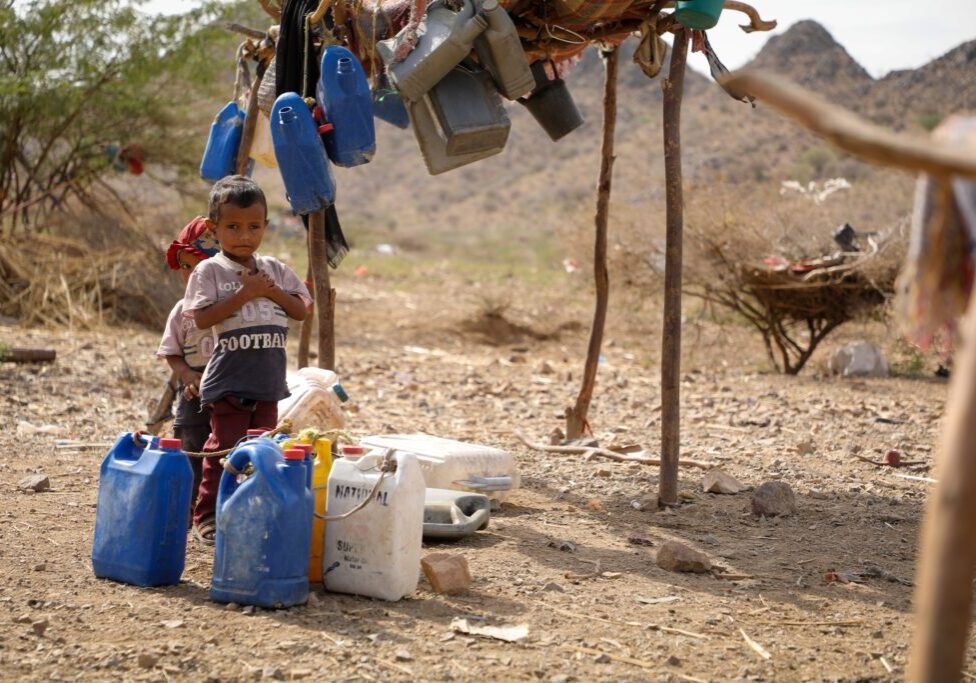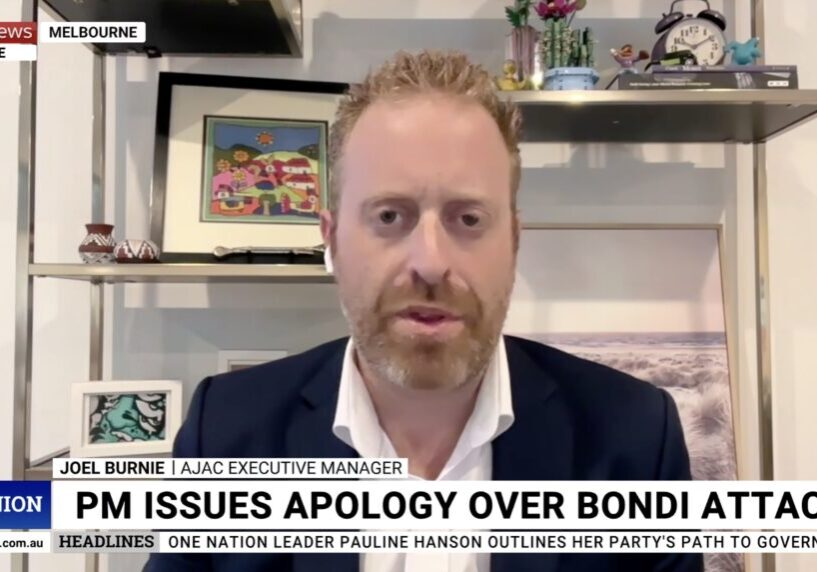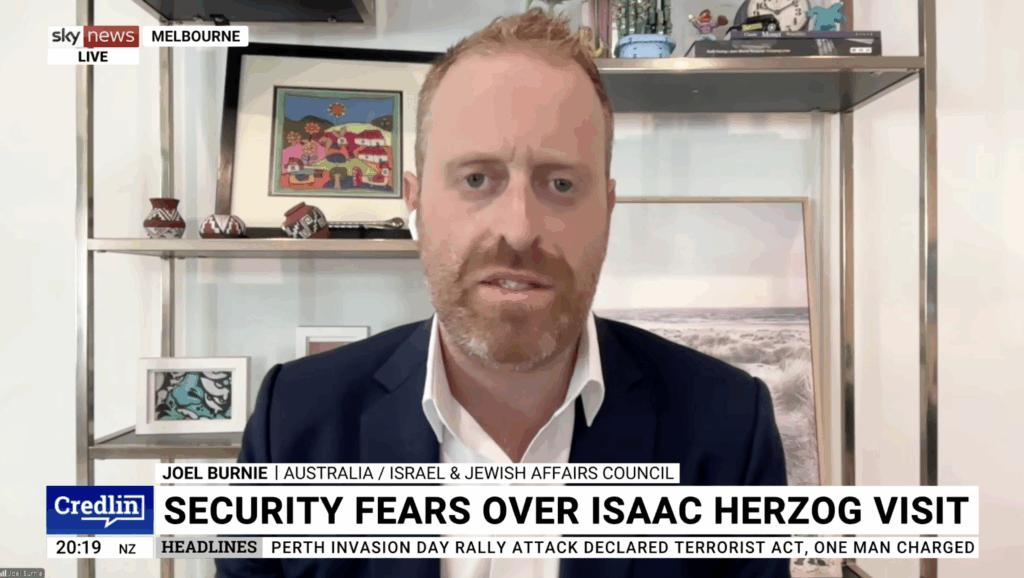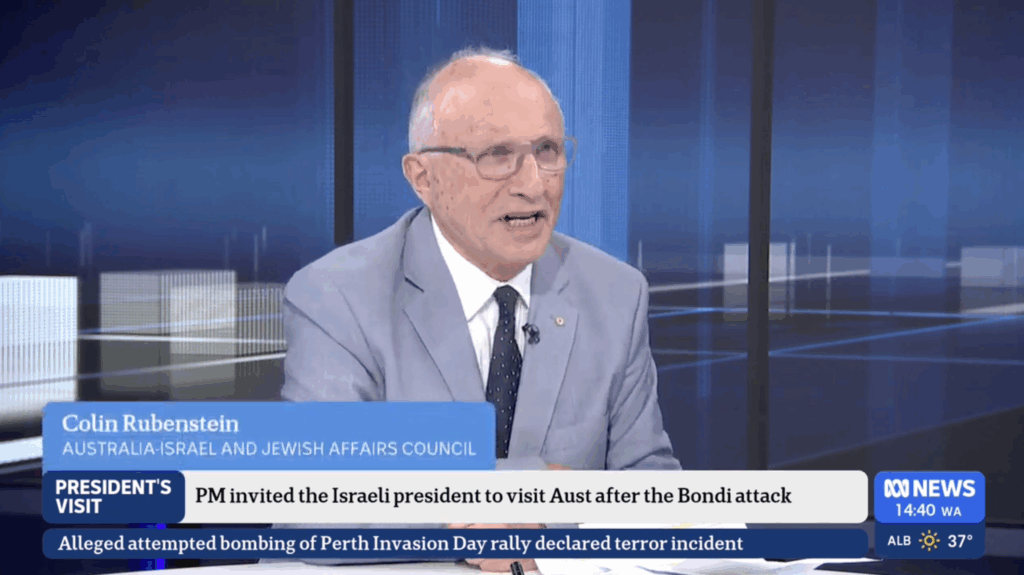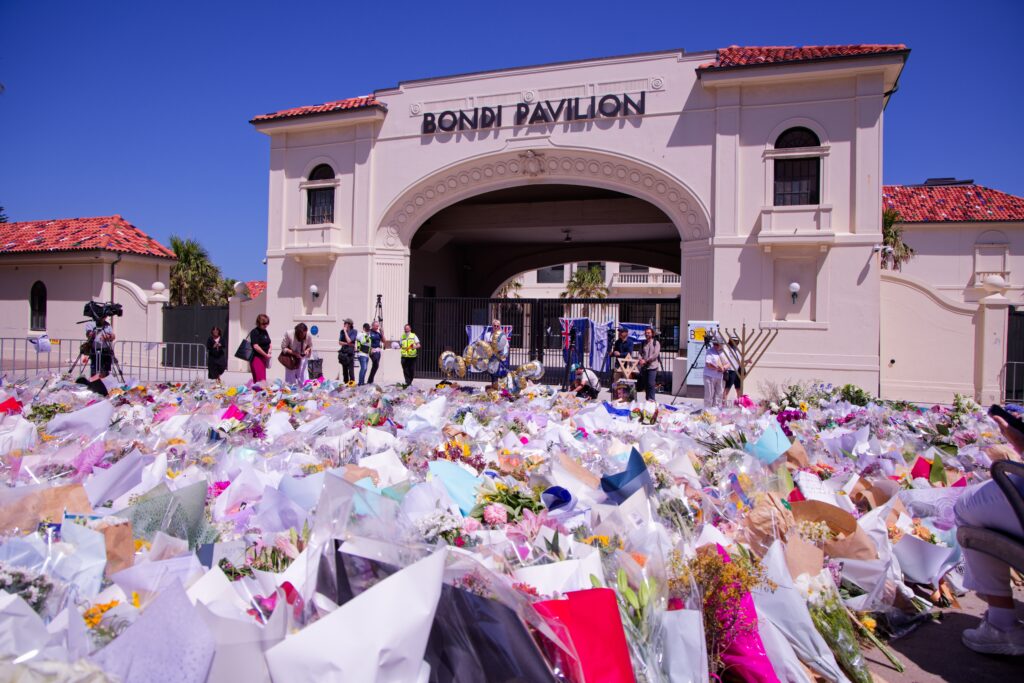FRESH AIR
The silver anniversary of the silver bullet
July 29, 2025 | Bren Carlill
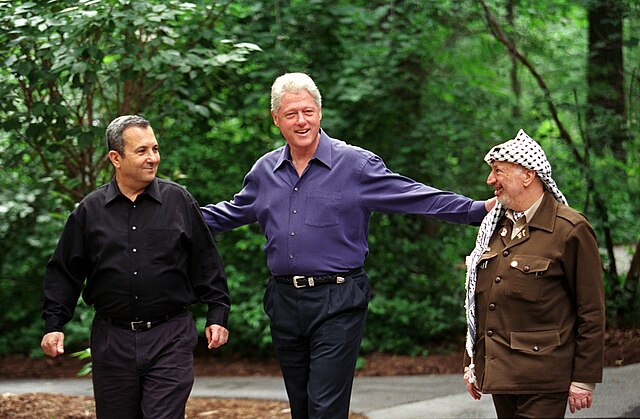
July 25 marked the 25th anniversary of the breakdown of the Camp David talks, which were supposed to resolve the Israeli-Palestinian dispute.
The terrible situation in Gaza is a stark reminder of the need for peace. However, if we want to achieve that peace, we need to learn the lessons of Camp David and the last 25 years.
Camp David is the US presidential retreat. For two weeks in July 2000, the American, Israeli and Palestinian leaderships gathered there to draw a line under the start/stop Oslo peace process, which began in 1993, by proceeding straight to final status talks.
During the talks, Israel offered the Palestinians a state in 92 per cent of the West Bank and all of Gaza. The negotiations ended on July 25 after the Palestinians refused the offer (and refused to make a counteroffer).
Blamed for the talks’ failure, the Palestinians launched the Second Intifada nine weeks later, knowing Israel’s response to shooting and suicide bombs would divert attention from Palestinian rejectionism.
Camp David (and the subsequent violence) was the end of the Oslo peace process. However, Camp David’s methodology – jumping straight to a final status agreement, despite the conditions required for viable peace not having been achieved – came to represent Western policy.
This shaped the peace talks in 2001, 2008 and 2014, which, like Camp David, sought a final status agreement and, like Camp David, saw Palestinians walk away from offers of statehood.
When, in 2014, Palestinians announced a refusal to re-enter final status negotiations, the international community pivoted. Instead of demanding negotiations, it began talking in ambiguities about the urgent need to create a Palestinian side alongside Israel.
This, as opposed to peace, has become the mantra of the international community. It’s a silver bullet approach to peace-making, instituted at Camp David.
Last week, French President Emmanuel Macron announced he’ll recognise Palestine in September. Australian Foreign Minister Penny Wong, British Foreign Minister David Lammy and others keep hinting they’ll recognise it as a way to ‘build momentum’ for its actual creation.
For her part, Senator Wong acknowledged that the Palestinian Authority needs reform, yet she’s called on the UN to create a “clear timeline for the international declaration of Palestinian statehood”. This indicates statehood is the goal, regardless of whether any meaningful reform will have taken place.
But the singular objective of creating a Palestinian state ignores a complex and troubling reality.
Let’s say that Palestine is created. That Israel withdraws from all or most of the West Bank. Will peace be realised?
What about the three decades of Palestinian school education that taught millions of kids that Israel has no moral legitimacy, that all of Israel is Palestine, and that constantly reinforced the value of violence over compromise?
What about the decades of Palestinian propaganda that the conflict will not end until all the refugees from 1948 (and their millions of descendants) are allowed to settle in Israel? (A third of Palestinians believe that this is more important than creating a state!)
Indeed, 64 per cent of Palestinians support “continued struggle until the liberation of all historic Palestine”. The same poll, asking what solution the Palestinians should achieve, saw only 28 per cent choose a state alongside Israel.
What about the religious view amongst Palestinians – epitomised by Hamas but widely held – that all of Israel is land granted by Allah to Muslims, so any non-Muslim control of that land is anathema? Three-quarters of Palestinians believe the Koran predicts the destruction of Israel.
This belief, until it is changed, is the cornerstone of decades of conflict to come.
The reality is, for many Palestinians, the creation of a Palestinian state is just one stage in the struggle to destroy Israel. Indeed, back in the 1970s, the Palestinians even had a name for this plan – the Stages Plan! But they dropped it, arguably because the name didn’t poll well among Western media and diplomats.
Given these are the views of the Palestinian people, has the international community properly considered the oft-proven fact that the PA has neither the will nor the ability to stop Palestinians that seek to kill Israelis? Would the conferral of ‘statehood’ (something that the majority of the world’s countries pretend the Palestinians already have) change this?
Do we not remember that Hamas – despite being outnumbered – overthrew the Palestinian Authority in Gaza in 2007, leading Palestinian Authority police to beg Israel to let them in to save them from slaughter?
The already tenuous hold the PA had over Palestinian loyalty has only weakened since then.
Moving beyond Palestinian genocidal intentions, the history of the Palestinian government encouraging those intentions, and its unwillingness to stop the consequences thereof, what about the fact that the PA is deeply corrupt and violently dictatorial?
Corruption scares away the foreign investment required for a viable economy.
Activists are arrested and even killed for criticising the PA. Maybe that’s why ten years of opinion polls show that only 35 per cent of West Bank Palestinians think they can safely criticise their government.
The reality is, if a Palestinian state were to be created tomorrow, it would quickly become a failed state. The silver bullet approach, if successful, would create the werewolf, not kill it.
Which brings us to Peter Varghese. When Secretary of Australia’s foreign ministry, he’d advise his staff (including me, at the time) to think not in terms of a silver bullet, but of ‘silver buckshot’. That if we want an outcome, however big or small, to be successfully achieved, we need to implement as many policies and approaches as possible, to make success more likely.
A silver buckshot approach to Israel-Palestinian relations is the only path to success. It means dropping the pretence that the immediate creation of a Palestinian state will magically end the conflict.
A silver buckshot approach is an awareness that there are people on both sides that never want to divide the land.
And that those who are theoretically willing to do so have zero trust in the other side’s intentions.
A silver buckshot approach would aim to publicly and repeatedly delegitimise and sideline those that never want to divide the land, and build up trust between those that do. That takes time.
A silver buckshot approach would address PA corruption, autocracy and incitement to violence (using the leverage that millions of dollars in aid brings). Doing so would create domestic legitimacy for the government, thereby creating the space to make the compromises that leading and peace-making inevitably requires.
A silver buckshot approach would insist that Palestinians cease using lawfare to pressure Israel in international organisations that have an in-built anti-Israel majority. This would build Israeli trust in Palestinian intentions.
It would (once again) build up PA police capabilities, but this time insist they stop unlawful Palestinian activities in areas under their control. And hold them accountable if they refuse.
It would insist that Israel prevents settler violence, and bring to justice the small but criminal minority that aim to intimidate and coerce Palestinian civilians. This would build Palestinian trust in Israeli intentions.
It would push for constant negotiations to create small, localised agreements between Israel and the Palestinian Authority that provide diplomatic wins for the latter, and lay the foundations for grander agreements moving forward.
A silver buckshot approach would also see Western leaders pushing back against those people who, whether from well-meaning ignorance or hatred, stoke tensions by accusing Israel of crimes it patently doesn’t commit.
It would mean our leaders making clear that the conflict is complicated. This would also mean our leaders no longer making simplistic statements about it.
Peace – real peace – takes time. It needs to be built from the ground up, as well as imposed from the top down. The silver bullet approach ignores ground-up peace-making and thereby undermines peace efforts. As time goes on, as more violence is perpetrated, as more grievances are stored in collective memories, peace becomes harder.
Peace between Israelis and Palestinians is extraordinarily difficult but it is possible – given leadership, pragmatism and time. Sadly, the international community’s approach lacks all three of these qualities.
Creating a Palestinian state before the Palestinian people, leaders and economy are ready for statehood (or peace with Israel), is a recipe for both civil war and war with Israel.
If Western policy makers actually want Israeli-Palestinian peace, they must drop the fairytale notion that a silver bullet – the creation of a Palestinian state – will solve everything, and instead begin the hard work of implementing a strategic, silver buckshot approach to slay the many anti-peace werewolves.
That is the lesson of Camp David 25 years ago, and the failure of the international community’s approach to the Israeli-Palestinian dispute ever since.
Dr Bren Carlill is the director of special projects at the Australia/Israel & Jewish Affairs Council. His PhD focused on the intractability of the Israeli-Palestinian dispute.
Tags: Israel, Palestinians, peace process
RELATED ARTICLES
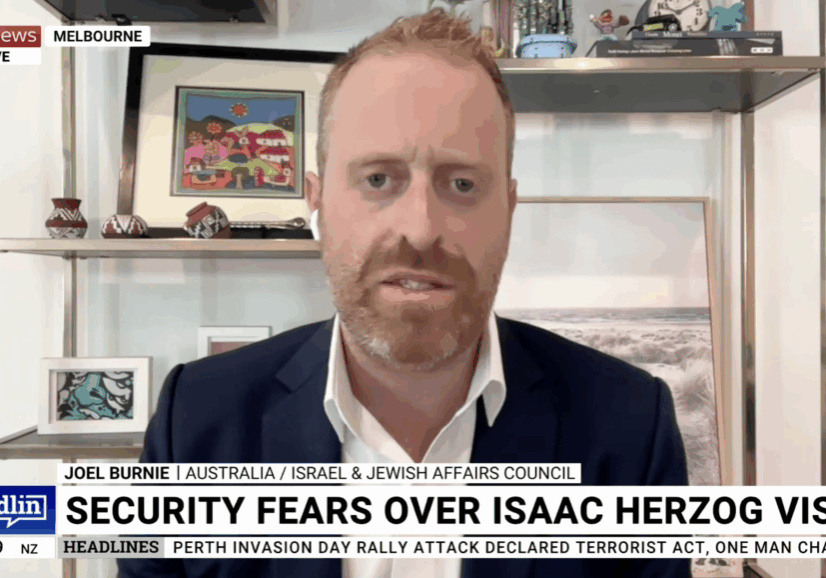
Security concerns over Herzog visit a terrible indictment: Joel Burnie on Sky News
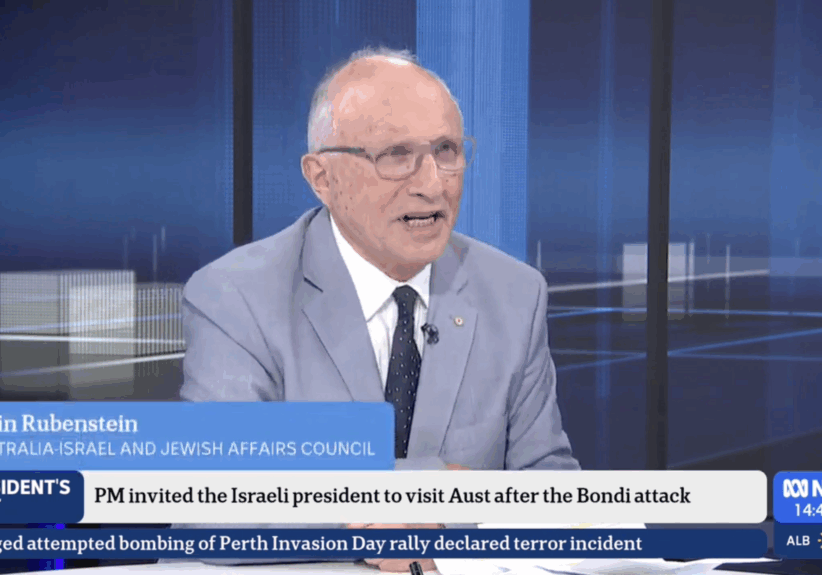
Allegations against Israeli President Herzog are absurd: Colin Rubenstein on ABC News







